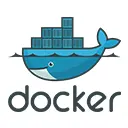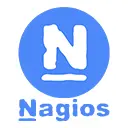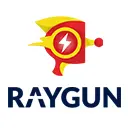
Cloud and DevOps Services
Developing and deploying software in this era of tireless innovation requires companies to operate according to an expertly planned strategy. This means staying ahead of competitors with fast and efficient development. It also means finding ways to safely cut costs without sacrificing quality or security.
Cloud computing and DevOps both play a critical role in accomplishing this task.

What Is Cloud Migration?
Migrating your operation to the cloud can improve your processing power while you build up a robust new level of security.
When you transfer all of your processes to a highly optimized cloud server system, your teams continue to work collaboratively with centralized data and administrative controls, but your information is no longer localized on personal servers that can be more easily compromised.
Your cloud server host becomes your partner in upgrading and optimizing processing and storage while either sharing in the responsibility of an added layer of security protections or bearing that sole responsibility.
What Is DevOps?
DevOps has become synonymous with cutting-edge development processes that free specialized teams from the siloed effect of antiquated coding practices.
Today’s fastest, most efficient, and most secure DevOps teams, like our experts at Excel Nearshore, operate using Agile methodology. This results in:
- Continuous team communication
- Sharing a central repository of project progress and resources
- Continuous deployment
- Communication with clients on daily progress
Development engineers participate together in the entire service lifecycle, from design through all stages of production.

What Are the Benefits of Migrating to the Cloud?
Cloud data and computing migration provides you with the structural shift from your on-location servers to those residing in the cloud, so you can gain the following advantages.
Increased Flexibility
Anyone with login credentials can access the digital workplace. This improves access to all of your employees, even if they work remotely.
Disaster Recovery Security
Fires, floods, earthquakes—these are the things we’ve all feared the most when it comes to the safety of our data and the value of our operations. Fortunately, with our cloud-based solutions, these disasters can no longer put your hardware at risk. Cloud servers rely on redundancy, so your data is off-site in more than one location. This prevents a single cyber attack or act of nature from impacting your data.
Reduced Costs
Cloud-based systems are more affordable to operate, manage, and maintain than hardware solutions. When you need to expand storage or processing power, adjusting your plan is easy, and you still don’t have the significant upfront cost of purchasing new equipment and accommodating it into your physical space.
Improved and Expansive Storage Options
With your computing migrated to the cloud, you’re not held back by physical storage limitations. Cloud storage capacity and processing power are constantly growing to meet the needs of the most advanced IT organizations.
Excel Nearshore will help you properly plan your infrastructure and organizational cloud operations. You can enjoy the peace of mind of knowing you can easily increase storage whenever that time comes.
Simplified Integration with Your Applications and Programs
Integrate all the cloud-based applications and software you rely on. This includes our ability to work with you to develop your own customized software tailored to your needs.
What are DevOps Practices?
DevOps uses Agile methodology to replace the limitations of partitioned development teams that used to pass development on from one group to the next. When combined with the power of your centralized cloud computing servers, you’ll see numerous optimizations immediately.
The following are some improvements that come with cloud migration and DevOps.
Continuous Integration
Development teams merge code changes into a central repository on an ongoing basis as automated builds and tests are run. This method allows developers to address bugs quicker, improve software quality, and reduce the time it takes to release new software updates.
Continuous Delivery
This is a software practice in which code changes are automatically tested, compiled, and prepared for a release to production.
Continuous delivery and continuous integration harmonize by deploying all code changes to a testing environment, then a production environment. This also allows us to provide our clients with each code segment for evaluation and even for alpha and beta testing. Meanwhile, production on the next chunk of completed code never slows.
Micro Services
Using continuous integration and delivery, micro services represent the most efficient modern approach to building software. Each element serves a specific purpose. You can use different frameworks or programming languages to write micro services and deploy them independently—as a single service or a group of services.
When using Agile methodology in a DevOps process, code is written in optimized, tested, and perfected applications that can be joined to provide robust, larger software deployment. Whether we’re looking at security updates, new features, or development from scratch, Agile is efficient and streamlined. This same process serves for continued security updates and upgrades for adding new features.
Infrastructure as Code (IaC)
Infrastructure as code is the process of managing and provisioning computer data centers through machine-readable definition files rather than physical hardware configuration or interactive configuration tools. IaC helps prevent errors while optimizing processes through redundant automation.
Monitoring and Logging
By capturing, categorizing, and analyzing data and logs, organizations can understand better how changes or updates will impact users. Active monitoring is necessary in a world of 24/7 service availability to prevent unexpected outages and proactively monitor for issues.
Collaboration
Using DevOps tools and automation establishes collaboration by physically bringing together the workflow and responsibilities of development and operations.
Industry tools we use:










How Can DevOps and Cloud Migration Help Your Business?
The following are some of the main benefits you’ll enjoy when partnering with Excel Nearshore for your cloud migration and DevOps projects.
Improved Customer Service
By being able to deploy more frequently, you are also speeding up recovery times, lowering change failure rates, and getting products out to customers quicker.
Managed Cloud Migration
Excel Nearshore can manage all your cloud migration and installation services, so you can remain focused on your tasks at hand.
Faster Resolutions
The longer it takes to fix a problem, the more money your company loses. When you solve problems more rapidly, you get back on track sooner.
More Time for Innovation
When you streamline processes, produce more stable builds, and release new products efficiently, you give your employees more time for innovation. This leads to increased employee satisfaction and retention rates.
Faster Time-to-Market
When your employees work together closely, you can deploy new processes, systems, and applications more rapidly.
Consistency and Stability
Customers expect 24/7 availability. Any downtime in your product can result in lost revenue, diminished brand loyalty, and decreased customer satisfaction. DevOps principles ensure everything is monitored and everyone understands how each release impacts quality.

Step 1
Let us know what you need help with.
Step 2
We’ll have a call to discuss your needs and our expertise.
Step 3
Have us build a team to achieve your goals.
